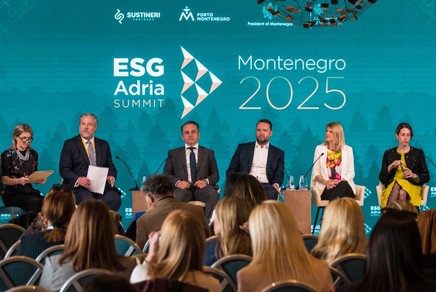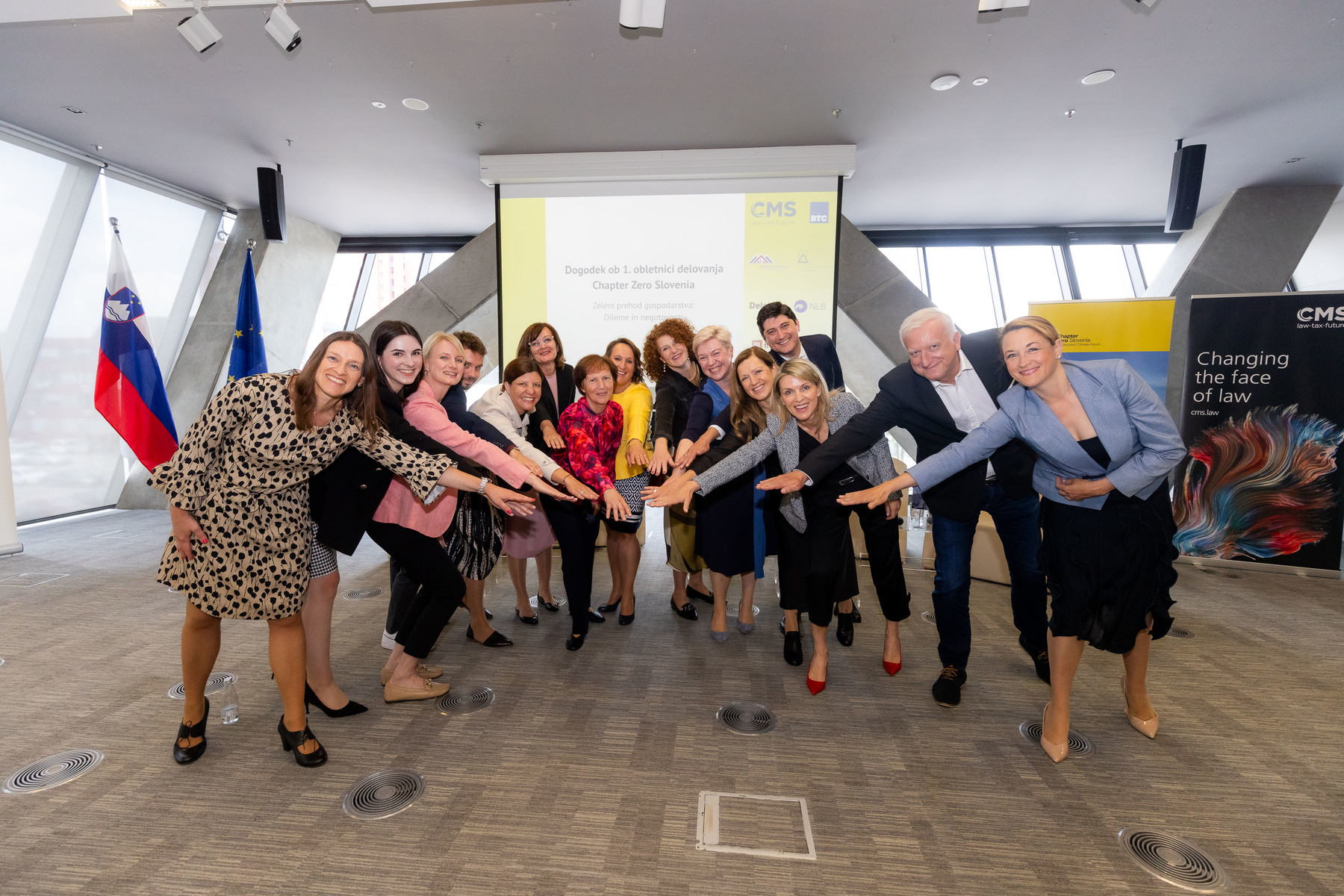Event Highlights: Climate Change Is Here, Not Even the Economy Is Immune
10 Oktober 2023
Ljubljana, 10 October 2023 - We organised an event entitled "From Crisis Management to a Systemic Approach to Sustainable Transformation" at the new sustainability-oriented Occidental Ljubljana hotel in the heart of the capital. In line with the mission of our initiative, which was established in April this year by the British-Slovenian Chamber of Commerce, Deloitte Slovenia and the Slovenian Directors' Association, the event brought together members of the management and supervisory
bodies of Slovenian companies.
Andrej Gnezda, Acting Director of the Directorate for Climate Policies at the Ministry of the Environment, Climate and Energy, opened the event by saying that the messages from science are clear; the consequences of climate change are here, and the economy is not immune to these changes, reminding the audience of the need for cooperation and dialogue between all stakeholders, including the state and the economy.
The event's keynote speaker, Dr Žiga Zaplotnik, a researcher at the European Centre for Medium-Range Weather Forecasts, began by warning "Climate change is our own fault, and this is an undeniable scientific fact." Among other things, he pointed out that Slovenia is one of the fastest warming populated areas in the world. Under current policies, Slovenia's atmosphere could warm by as much as 4.9 degrees Celsius by 2100, leading to even greater exposure to extreme weather
events and heat waves, implying that by the end of the century, Slovenia’s climate could be similar to the current climate of North African countries. He concluded by saying, "The solutions are entirely in our hands, we just need the will and the power to implement them."
Recognising that achieving a carbon-free future is everyone's responsibility, Meta Pezdir, Project Manager at Circular Change, presented a tool to measure carbon footprint. Participants had the opportunity to calculate their carbon footprint and received useful tips on how to reduce their impact on the environment.
A panel discussion followed, moderated by Kim Turk Mehes, Senior Manager, Government and Public Services / Sustainability at Deloitte Slovenia and Head of the Working Group, Chapter Zero Slovenia, with panelists Boštjan Kozole, CEO at Evrosad, Jošt Dolničar, President of the Management Board at Zavarovalnica Sava, and Larisa Grizilo, HR & Corporate Communications Director at A1 Slovenia.
In the discussion, Mr Kozole highlighted Evrosad's proactive adaptation to extreme weather conditions, focusing more and more on the domestic market and diversification of its crops. He however explained that fruit and vegetables cannot be provided at a cheap price due to the changing weather conditions and the related adjustments and additional investments. Mr Dolničar explained that the formulation of insurance is closely linked to the assessment of climate change risks, as well as to direct communication with the beneficiaries, who can already do a lot on their own to protect themselves as a preventive measure. He also highlighted the growing need to update risk assessment models in the light of changing climate patterns. The panellists agreed, among other things, that a sustainable transformation requires all stakeholders to work together, not only to find new ways to achieve climate goals, but also to fundamentally transform our thinking and social paradigm on climate change. It is the management of companies that must lead by example by promoting sustainable practices among their employees and the wider community, Ms Grizilo pointed out.
Gorazd Podbevšek, Chairman of the Slovenian Directors' Association, concluded the event with a message on the role of the business community in shaping a sustainable future that goes beyond its own interests and strives for the common good. The event was facilitated by Barbara Uranjek, CEO of the British-Slovenian Chamber of Commerce.






















